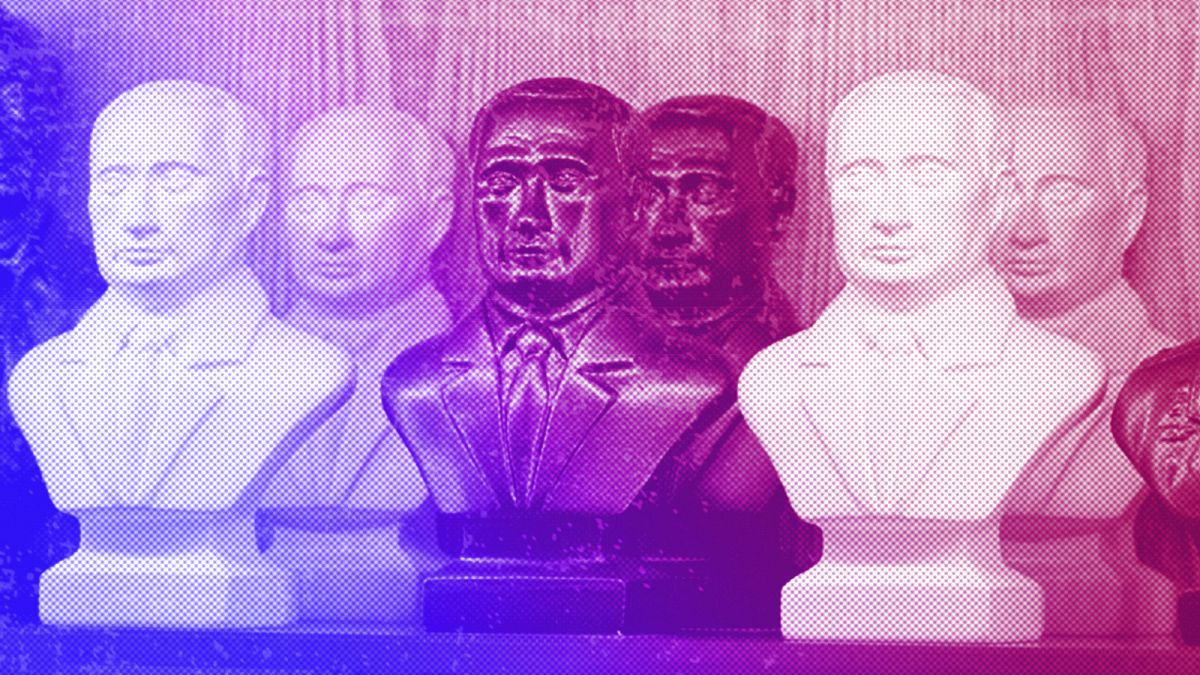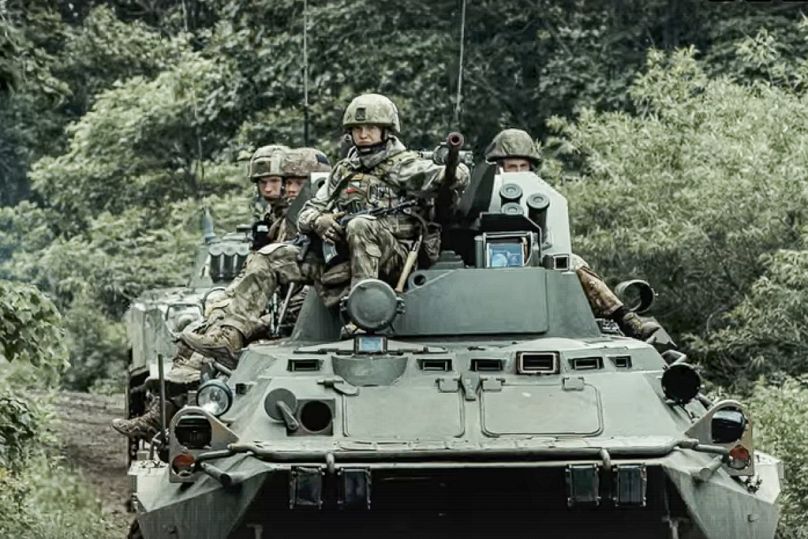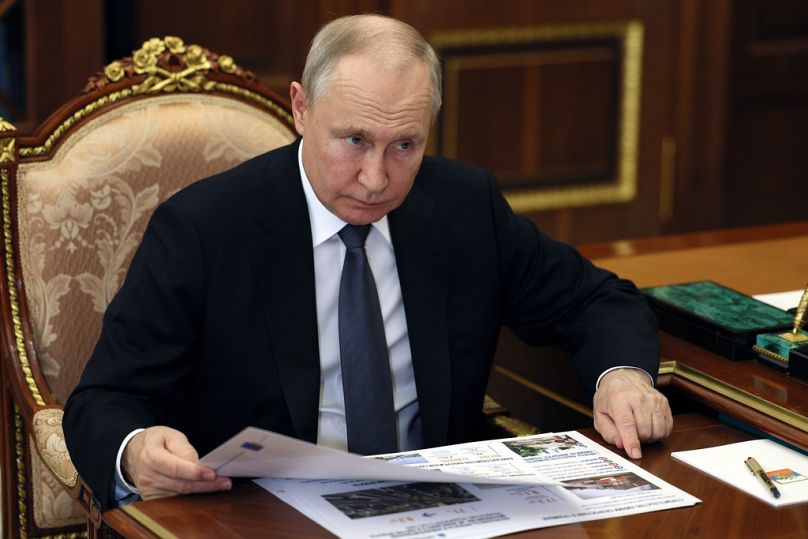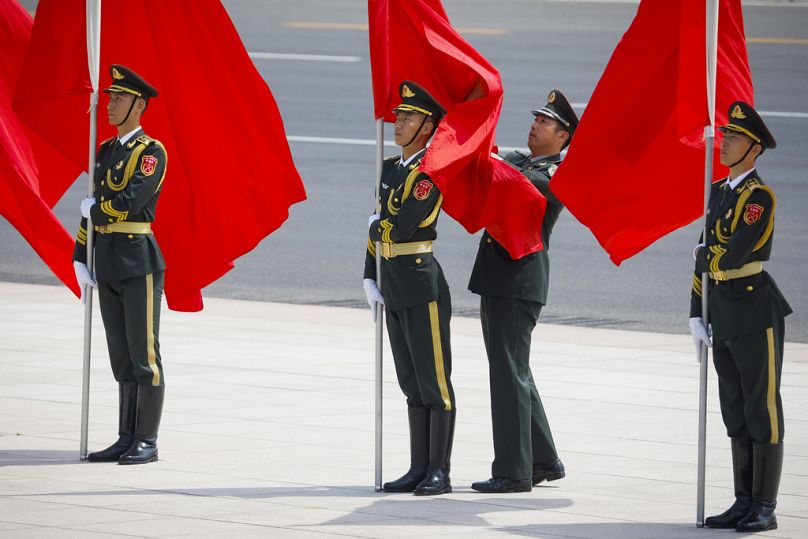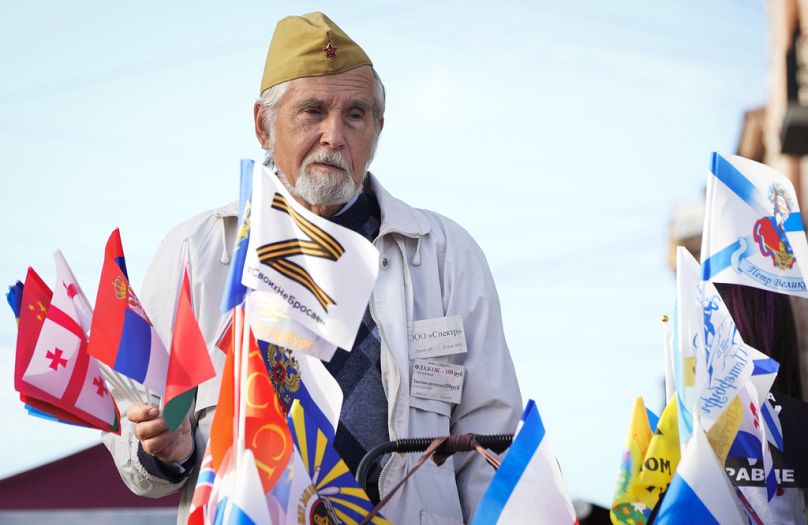Once known for calling others "the sick man of Europe", today's Russia has decidedly found itself in a military, economic, political, demographic, and even conceptual dead end, Aleksandar Đokić writes.
After Yevgeny Prigozhin’s failed mutiny against and, to an extent, successful negotiations with his boss and commander-in-chief, Vladimir Putin, discussions of the breakup of Russia and its imminent defeat got a second wind.
The premise of Russia as the “sick man of Europe” — a 19th-century term the Russian emperor Nicholas I used to describe Moscow's long-standing rival, the Ottoman Empire — seems fitting for Putin’s Russia today.
The weight of the metaphor doesn't mean that this malaise of the Russian state means its imminent demise — be it military, economic or political — or that Russia is a country bereft of power.
On the contrary: Russia remains the most aggressive foe against the democratic world.
The poetic justice of the imperialistic, orientalising and commonly overused term coming back to haunt its place of origin aside, Putin’s Russia has decidedly found itself in a military, economic, political, demographic, and even conceptual dead end.
Meanwhile, making any kind of straightforward analogy between the 19th-century Ottoman Empire and 21st-century Russia would be amateurish and wrong in many ways.
After all, the same “sickly” Ottoman Empire managed to crush many a revolt and even win a few wars during its period of final decline, and the steely resolve of the World War I defenders of Gallipoli — the military campaign that coincidentally saw Turkey's reformist moderniser Mustafa Kemal Atatürk rise to prominence — is remembered to this day.
Being the “sick man” of geopolitics doesn’t mean that the said country is not able to defend itself or even, in turn, attack others. If that were the case, it would be “lifeless”.
It is the lack of future of its political carcass which makes it terminally ill.
Diagnosis terminal, outlook nonexistent
This political ailment stems from the centre of power being unable to make reforms to cause a revolution from above.
It is precisely “sick” because it is set in its ways, immovable, and helpless in the face of modernisation.
A country such as Russia may control a vast territory and command its shrinking, ageing and apathetic society without much difficulty.
Its coffers may still hold capital which it cannot invest in much more than prolonging its state of war, while its economy, although without hope of growth, may remain somewhat above water for years.
In Moscow's case, this also means that it can incur suffering for thousands upon thousands of Ukrainians in the process.
What Putin’s Russia cannot, however, manage is to survive in its current form.
This does not mean that Russia itself will forever cease to exist, nor that it will fall apart into many pieces, although it will be very difficult to keep its peripheral republics, such as Chechnya, Dagestan or Buryatia, within its borders.
Dying by one's own Kalibr
If Russia were an isolationist state akin to Cuba, it might very well continue to play out its role of the “sick man” for decades to no end.
The aggressive nature of its regime, which wages war to prolong and secure its existence, will precisely be its downfall.
Alongside the fact that Putin’s Russia has no sustainable future, its “sickly” status is confirmed by the fact that its further existence depends mostly on two great powers – the US and China.
These are the two powers which will determine the future of Putin’s Russia from without, as opposed to the existing internal factors.
Russia is no longer an active subject — it has become nothing more than a passive object, no matter how immovable and immense in size.
If anything, it has fallen victim to its own shapkozakidatelstvo — a bragging assurance that the enemy is weak and victory is all but guaranteed — which most accurately reflects a false idea of the adversary and the hubris that is its inseparable companion.
The real superpowers don't want Russia to fall apart — yet
If Washington decides to increase aid to Ukraine, it can incur a decisive defeat against Russia.
Yet, the US has shown it does not want to start a chain of events which could either lead to a nuclear Russia breaking up — with swathes of warheads suddenly in the hands of many, some of whom might be even more prone to using them — or the use of nuclear weapons by Russia of today.
That is why the US supplies Ukraine with just enough arms to incur a limited defeat on Russia, one that could achieve continental security without risking a direct conflict with the Kremlin or a chaotic breakup scenario.
China, on the other hand, supplies Russia with the technology it needs to sustain the minimum of its military production while supporting trade — on Beijing's terms, of course — which keeps the Russian economy afloat.
As more time passes, it is becoming increasingly clear that China is satisfied Russia has lost its status and fallen down a few rungs, and Beijing is determined to keep it artificially and barely alive as long as possible.
For China, a vegetative Russia becomes a shield against Western ambitions and a source of cheap energy resources.
An audience of head nodders and yes-men
Despite all of this, the Russian leadership and the majority of Russian society remain obsessed with the great power status that is no more — a kind of thinking reflected in how Russian propaganda reacts to Ukraine defending itself.
Just days ago, the famous state propagandist Olga Skabeyeva was outraged at the most recent attack on the Kerch Bridge in Crimea: "They (the Ukrainians) are spitting in our face and saying, 'Yes, it was us, and we’ll continue to do it.'"
"We need to have a sense of our own dignity. At the end of the day, we’re a great power," Skabeyeva exclaimed, albeit unconvincingly, to an audience of head nodders and yes-men.
Yet, despite the bruised ego of your average Russian patriot, that is no longer the case. Russia is not a great power. Its fate is now being decided in the capitals of real great powers.
The unfortunate flip side is that a state doesn’t have to have a future or to be a great power to cause pain and suffering.
Let's not forget that even a country or a society that is dead inside can still put up a fight. And in Ukraine, Russia is keen to continue until its last breath.
Aleksandar Đokić is a Serbian political scientist and analyst with bylines in Novaya Gazeta. He was formerly a lecturer at RUDN University in Moscow.
At Euronews, we believe all views matter. Contact us at view@euronews.com to send pitches or submissions and be part of the conversation.
